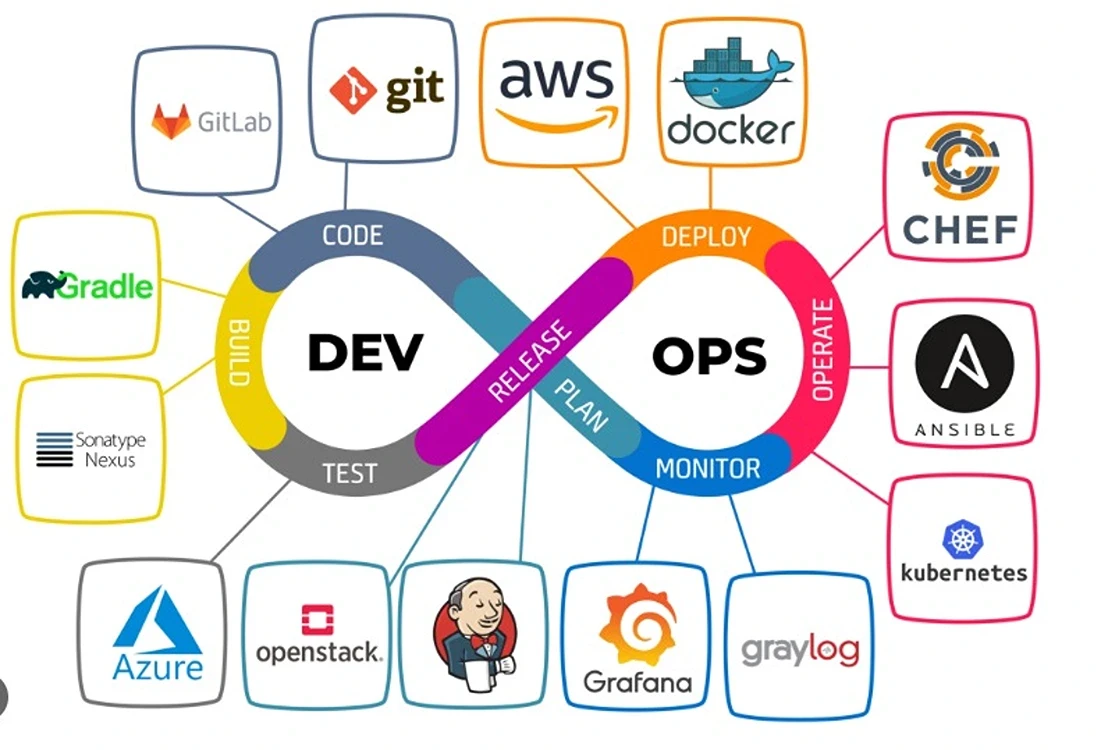In today’s digital-first world, DevOps has become a cornerstone for building and running modern software systems. It’s not just a buzzword or a passing trend—it’s a cultural and technical shift that fundamentally changes how organizations deliver digital products and services.
For years, development teams (Developers) and operations teams (Operations) worked in silos. Developers focused on writing code, while operations teams were tasked with maintaining uptime and stability. This separation often led to friction, slow releases, and unstable deployments. DevOps emerged as the solution—a methodology, culture, and set of practices designed to break down these barriers and enable faster, more reliable delivery of software.
What is DevOps?
DevOps is a combination of “Development” and “Operations.” But it’s more than just a role or a tool—it’s a mindset. At its core, DevOps integrates both teams into a unified lifecycle that starts with writing code and continues all the way to deployment, monitoring, and continuous improvement.
The philosophy is simple:
- Code is written quickly.
- It’s automatically tested.
- It’s deployed smoothly.
- It’s monitored and improved continuously.
The Core Goals of DevOps
- Faster Time-to-Market – Deliver updates and new features rapidly.
- Higher Software Quality – Leverage automated testing and continuous integration.
- Increased Reliability – Ensure systems are stable and scalable with minimal downtime.
- Enhanced Collaboration – Break down silos between teams to boost efficiency.
Key DevOps Practices
- Continuous Integration (CI): Regularly merging code into a shared repository with automated testing.
- Continuous Delivery/Deployment (CD): Automating the release pipeline to push changes quickly and safely to production.
- Infrastructure as Code (IaC): Using tools like Terraform or Ansible to define and manage infrastructure programmatically.
- Monitoring & Logging: Tracking system performance and security with tools such as Prometheus, Grafana, and ELK Stack.
- Automation: Reducing manual effort to increase consistency and reliability across the software lifecycle.
Popular DevOps Tools
- GitHub Actions / GitLab CI/CD for pipelines and automation.
- Jenkins as a flexible open-source automation server.
- Docker & Kubernetes for containerization and microservices orchestration.
- Terraform & Ansible for infrastructure automation.
- Prometheus & Grafana for system monitoring and analytics.
Real-World Applications
- E-commerce: DevOps ensures platforms stay stable during peak shopping seasons while allowing fast rollout of new features.
- Financial Services: Continuous delivery enables secure, frequent updates to online payment systems without compromising compliance.
- Education Platforms: Scalability through DevOps practices ensures smooth learning experiences even with surging student numbers.
Who Owns DevOps?
The answer depends on company size and maturity:
- Startups and small businesses often outsource DevOps to specialized providers or assign it to a developer with DevOps skills.
- Medium to large enterprises usually establish dedicated DevOps teams or departments, as high availability and scalability become mission-critical.
The DevOps Engineer Role
Many companies hire a DevOps Engineer, responsible for:
- Building and maintaining CI/CD pipelines.
- Monitoring systems and logs to ensure performance.
- Managing cloud or on-prem infrastructure (AWS, Azure, GCP).
- Bridging the gap between developers and operations.
- Automating testing and deployments for faster, safer releases.
Core skill set:
- Strong foundation in software development or system administration.
- Hands-on experience with Docker, Kubernetes, Jenkins, GitLab CI/CD, Terraform, Ansible.
- Solid understanding of networking, databases, and cybersecurity.
Why Should Companies Adopt DevOps?
- Reduce release cycles from months to days—or even hours.
- Gain agility to adapt quickly to market demands.
- Deliver faster, more stable services that improve customer experience.
- Cut costs by minimizing outages, downtime, and deployment errors.
Conclusion
DevOps is not just about technology—it’s about culture, collaboration, and continuous improvement. By integrating development and operations, organizations can strike the right balance between speed, quality, and reliability.
Companies that embrace DevOps position themselves to stay ahead in an increasingly competitive digital market, where the ability to deliver secure, scalable, and innovative solutions quickly is the true differentiator.
 English
English
 العربية
العربية


Add New Comment